High on the list of must-see 2016 films is Whit Stillman’s Love & Friendship — a movie I liked a lot on one viewing but fell in love with on the second. Where Joe Wright took some of the starchiness out of Jane Austen with his Pride & Prejudice (2005), Stillman’s adaptation of Lady Susan, Austen’s posthumously published novella, brings in extra starch to make the comings and goings and frettings and plottings and pompous posturing just that much more comic and affected. It is Austen — reasonably at least — with a touch of Oscar Wilde and full-on Whit Stillman. Funny, appealing, civilized — and fully aware of the artifice holding it all together.
This may be a late 18th-century period piece — and a flawlessly achieved one — but it fits very smoothly into Stillman’s heavily-mannered oeuvre, where people are casually absurd and cling to traditions of a past they never actually knew. The distance between Kate Beckinsale’s scheming Lady Susan Verning and Greta Gerwig’s affected Violet in Damsels in Distress (2011) isn’t that far, while the difference between Tom Bennett’s Sir Thomas Martin and the dimmer frat boys in that earlier film is nonexistent.
The film begins with the widowed Lady Susan being sent packing (with the strains of Henry Purcell’s “Funeral March for Queen Mary” on the soundtrack to heighten the overt dramatics) from a stately English home where it appears she was a little too familiar with the lord of the manor to suit his wife. But Lady Susan is not one to be so easily deterred and takes herself to her in-laws’ country estate. Her sister-in-law, Catherine DeCourcy Vernon (Emma Greenwell), is hesitant because, as younger brother Reginald DeCourcy tactlessly puts it, Lady Susan is “the biggest flirt in England.” But head-of-the-house Charles Vernon (Justin Edwards) is adamant that they must offer shelter to his late brother’s wife. And so it begins. Of course, Reginald is dead right about Lady Susan — and he’s also the first to fall prey to her charms, something that horrifies his parents.
Their disapproval is not Lady Susan’s first concern, however, since her daughter, Frederica (Morfydd Clark), arrives in a state of despair. (“She’s had no tea — could be a lack of nourishment,” opines Charles Vernon.) Frederica has run away from school and is being pursued by a moneyed dolt of a suitor, the aforementioned Sir James Martin (identified in one of the film’s droll titles as “her unintended”). Sir James is … well, invincibly stupid, debating things like the “Twelve Commandments” (and is delighted to learn that God seems to have knocked them down to 10). At least he recognizes (sort of) his limitations, admitting at one point, “I realize I was in mistake and now stand corrected. Happens quite a lot.” To Lady Susan, though, he’d be a good match for Frederica and would get her out of the way.
This is only the tip of the iceberg in the film’s many twists, turns and Lady Susan’s plottings — many of which could be considered self-protective, which is perhaps essential for a woman in 18th-century England. In any case, it’s obvious Stillman admires her gall, tenacity, pragmatism and endless invention (more so than Ms. Austen did, perhaps). And it’s hard not to admire a woman who remarks to her American friend Alicia (Chloë Sevigny) that said friend’s choice of husbands (Stephen Fry) was ill-advised: “What a mistake you made marrying Mr. Johnson — too old to be governable, too young to die.”
There’s a flurry of exchanged letters carried by harried servants who sometimes know too much, many machinations and more than a few amusingly convenient coincidences — all leading to something like a happy ending. Well, it’s an ending that leaves most of the characters satisfied, but it is not one where you are apt say that virtue has been rewarded, though perhaps in the world of Love & Friendship it has. Regardless, this is an unalloyed delight from start to finish. Rated PG for some thematic elements.
Playing at Carolina Cinemark.



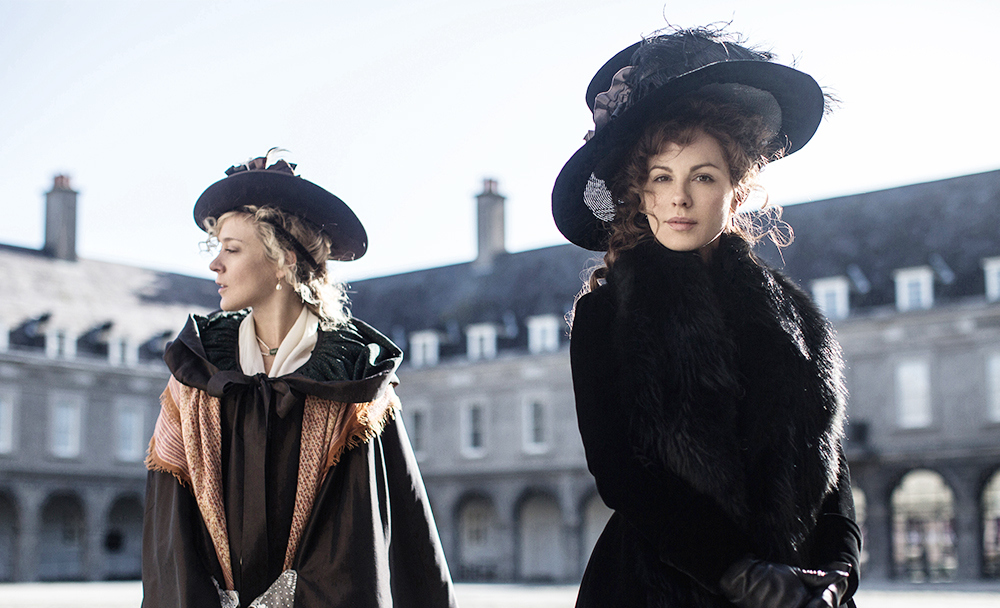
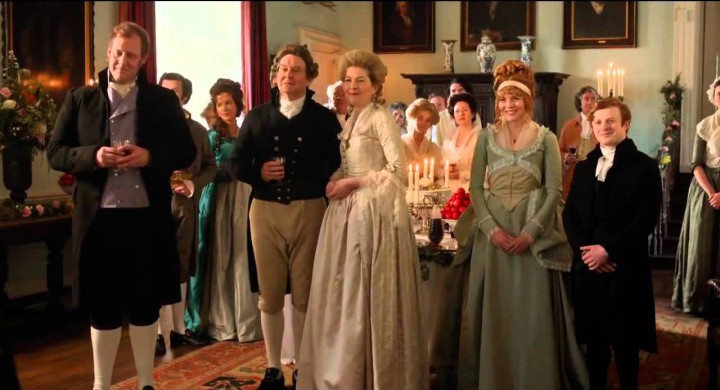
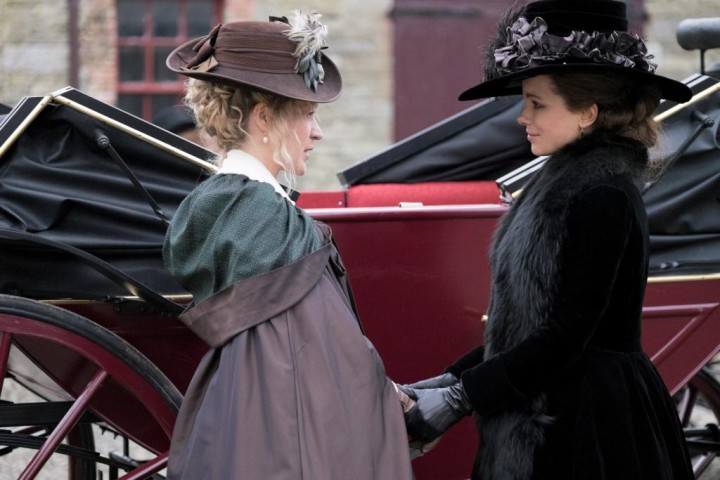
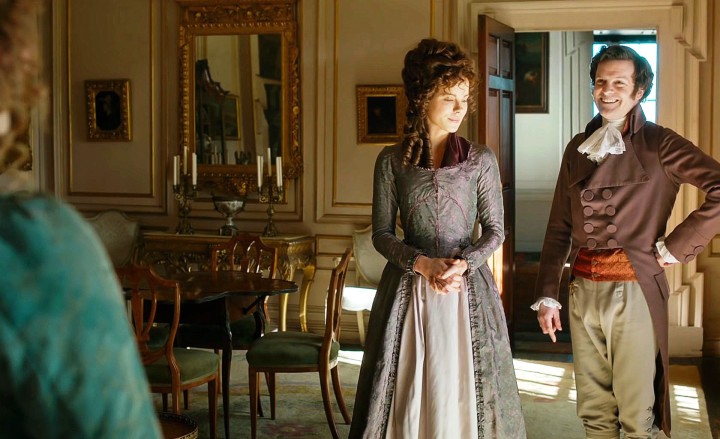
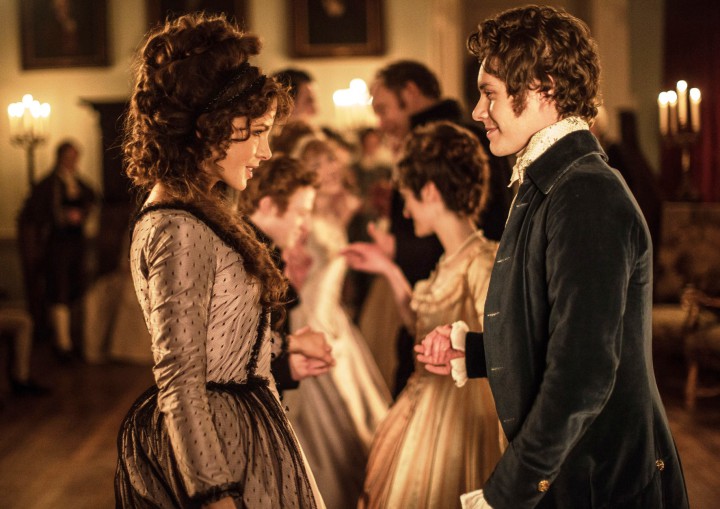
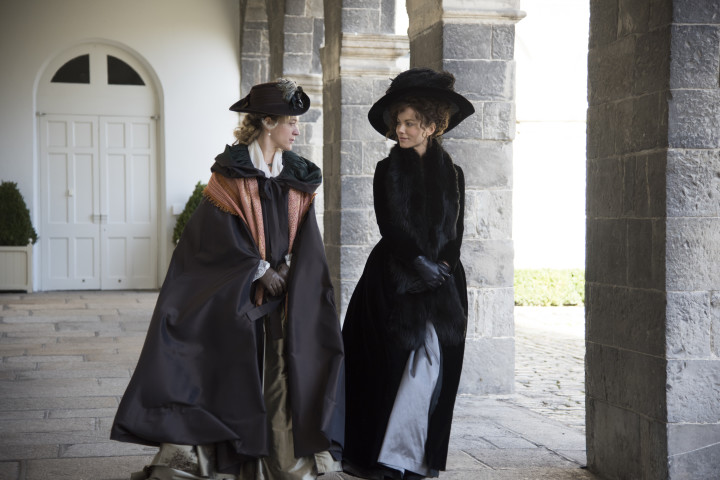
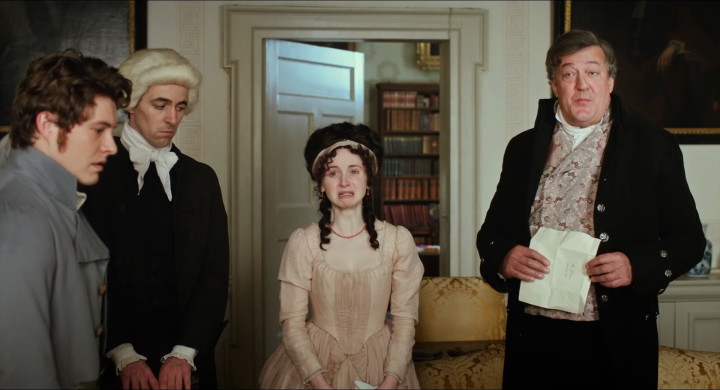
I had a feeling you were going to love this one.
Have you seen it?
No, just from reading some of the reviews and seeing the trailer, I thought you might like it.
Well, I have a history of liking Whit Stillman.
That too
That’s actually a double-edged sword since it tends to raise the bar of expectations.